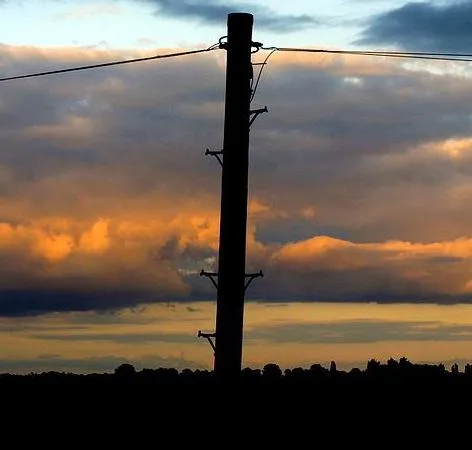Lifeline advocates offer five principles for a quality broadband program

The Leadership Conference on Civil and Human Rights, along with CWA and leading public interest and consumer advocacy groups, submitteda letter to Federal Communications Commission (FCC) Chair Tom Wheeler urging him to“move rapidly to expand the Lifeline program to support broadband Internet access for low-income people” by adopting “an Order on Lifeline modernization this year.”
The letter notes that broadband access is essential for modern communication, education, and employment. It offers five principles to Wheeler as suggestions to ensure an updated program meets the needs of communities in the 21st century. From the letter:
A rapid and bold effort to update the Lifeline program for broadband is necessary to address the serious gap in broadband adoption among low-income communities. We believe the following principles are essential to ensuring a quality Lifeline program for broadband support and should form the basis of your work to modernize the program:
1. Universality. The Lifeline program must provide sufficient resources and be designed to ensure that all eligible households receive the support they need to afford the high-quality broadband services that are essential for participation in our nation’s economic, social, and political life.
2. Excellence. As Commissioner Clyburn has noted, we need a Lifeline program for broadband that delivers maximum “bang for our buck.” Broadband Lifeline must support Internet connections of sufficient capacity to enable people who use it to perform a full range of online activities, including access to digital education, health care, social services, applying for jobs, performing job-related functions, closing the homework gap, reaching out for emergency services, accessing diverse and independent media, and participating as citizens in civic discourse. Substandard services are not worthy of federal support through the Lifeline program. For example, the Connect America Fund universal service program has adopted a 10 megabits per second downstream/one megabit per second upstream standard as the minimum speed qualifying as broadband. But minimum standards are not enough. A quality Lifeline for broadband program must aid users throughout the eligibility certification process.
3. Choice and competition. A strength of the current Lifeline program is that it leverages marketplace competition. The Commission should maintain this feature as it upgrades Lifeline for broadband. A Lifeline for broadband program should adopt mechanisms that will increase users’ knowledge of their choices and enhance their ability to compare products. A portable Lifeline benefit will encourage companies to improve offerings to compete for Lifeline customers. Centralized eligibility determinations are a crucial part of permitting consumers to seamlessly move from one carrier to another and enticing carriers that are not currently participating in the program.
4. Innovation. The Commission should structure the Lifeline for broadband program to support continuous innovation to improve program design and efficient operations. The Commission’s Lifeline broadband pilot projects are only a first step in experimentation to improve the program. Rather than delay these critical reform efforts, the Commission should integrate innovation into the Lifeline program itself. For example, the program should offer financial incentives to provide above-average services or achieve program objectives such as high participation rates; dedicate funding to engage local community organizations in outreach efforts to boost broadband adoption through a continuum of digital learning; and provide incentive grants to state governments to find the best ways to centralize eligibility databases that will boost enrollment, improve efficiency, and reduce fraud.
5. Efficiency, transparency, accountability. The Commission has already made considerable progress in reforming the Lifeline program to conform to the highest ethical standards. The Commission must continue its vigilance to protect consumers’ pocketbooks and their privacy. We support continued use of the Lifeline strike force, audits, and enforcement actions, including penalties and fines, for carrier fraud. Furthermore, we urge the Commission to increase its data collection and analysis of the program’s effectiveness, which will help ensure accountability. We hope to see reports on successful carriers and states, data on participant choices, service offerings, enrollment numbers, and more. The civil rights community is particularly interested in data identifying whether the communities it represents are being well-served. Finally, the Commission should make continuous service for eligible households a priority in the design of the enrollment and annual verification processes. This will reduce avoidable and harmful churn in program participation.
Broadband has become an essential service in modern life. It is as important now as electricity was during the last century. We urge you to move swiftly and take the necessary steps to expand the Lifeline program to support broadband within the year.
The Communications Workers of America (CWA) was one of more than 50 organizations that co-signed the letter, and the union has consistently called for expanding Lifeline to include high-speed Internet.Read the rest of the letterhere, and read Speed Matters’ past reporting on the Lifeline program below.
Lifeline Principles letter (The Leadership Conference, June 10, 2015)
Expand Lifeline to include broadband (Speed Matters, Mar. 16, 2015)
Civil rights group urges expansion and improvement of Lifeline (Speed Matters, Mar. 18, 2015)
Civil rights group: “GAO Report Bolsters Need for Lifeline Broadband Expansion” (Speed Matters, May 12, 2015)
CWA members oppose AT&T’s attempts to stop serving rural and low-income communities in California
CWA urges FCC to deny industry attempts to loosen pole attachment standards
CWA District 6 reaches agreement with AT&T Mobility



